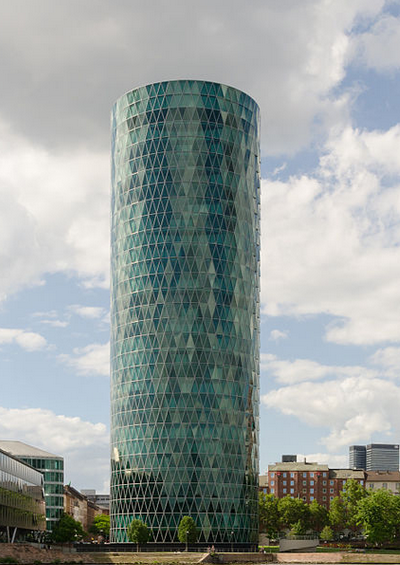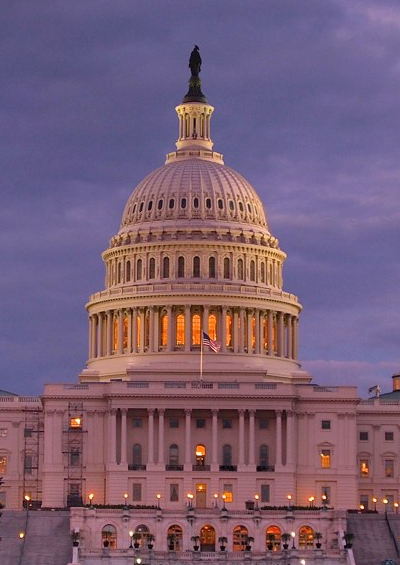Anti-Militarism: A Source of Modern German Confidence
With nothing left to prove on battlefields, Germany can pursue other tasks and strategies.
June 8, 2015

20th century Americans looking at the German nation in modernity are still mesmerized by the power of Germania’s military mythos, first forged in the 19th century in the Franco-Prussian War.
Paradoxically and perversely, this mythos was only enhanced – not erased – by defeat both in World War I and World War II.
How could this be? Isn’t a defeat a defeat – and, in the German case, an absolute throw-down – and a shameful denial of the towering heights their national enterprise had so earnestly sought?
An important hint why this was not so is this: In both world wars, Germany’s battle performance – defeated at great cost in blood and money by a vast coalition of opponents – has been consistently presented by the great Victors (!) as superior.
Strategic errors have been confessed, but laid almost totally on the political class. The German military is hailed, 70-100 years later, as an ideal of operational and tactical achievement on the battlefield.
Other defeated powers, including Germany’s allies in both wars, are derided as second-rate and sometimes (for many years) as unworthy and undeserving opponents. Yet Germany has always held its respected stature even in surrender.
Respect accorded by the United States
The most powerful testament to the continuing aura of a mythic German military can be seen on American cable television — on the Smithsonian, the American Heroes, the Military and the History Channels.
So dominant, and so unintentionally adulatory is their programming on Third Reich topics that many refer to the History Channel as the Hitler Channel.
This cultural expression actually endows Germany, most importantly in America’s historical imagination, the pride of place as best fighters, as best tech and as the unquestioned “fashion” leaders in war, even so long after Germany gave up its craving for battle.
This is a puzzling, disturbing and also an ironic outcome. And yet, it actually serves to create a positive opportunity space for contemporary Germany.
After all, regarding how nations conceive of themselves historically and choose to act much depends on the memorialized experience of battle between enemies. Usually, victors show little, or bare-token, respect.
But Germany forever secured its place in the mythic battle standards of war — because of the respect so readily given and so eagerly accorded by the United States.
Other powers have been thoroughly humiliated — or ashamed — in their defeat and resented it forever. Germany found its performance apotheosized after 1945.
It is as if, in the American psyche, it inhabits a separated memory space — a secure compartment — from the Holocaust, the Bloodlands and the Blitz.
Discarding the yardstick of martial achievement
This paradox of deep American respect for historical German battle performance has not only endured, it has made it possible for postwar Germans to happily discard the entire yardstick of martial achievement and rely on a completely different compass of national destiny.
Having been kept from securing a militarized global empire, Germany is at last finally freed from the constant, nagging fear of being knocked off the top spot.
Whether in Afghanistan, Iraq, Libya or elsewhere — as far as Germany is concerned, the requirement of military fortitude that befits any great nation has already been achieved. There is no need to prove its mettle in this field because there is simply nothing left to prove.
Thus, Germany’s national identity could move on after World War II. Germans readily left behind their dizzying but unbending height of quasi-religious nationalism (1850-1945).
The Germans of 1900, could they see their country now, would not recognize it. They might even be ashamed. Germans today, however, are not – and the argument is theirs to celebrate.
What is the difference between Germans in 1900 and Germans today? Confidence. Back in the day, even after the greatest imaginable victory over France in 1870, Germans still felt unfinished and insecure. Every Second of September, from the 1870s to 1918, the nation celebrated its destruction of the French nation at Sedan.
But here is the sad story: Germans never felt that they had achieved, or reached the true heights, or fulfilled their destiny. Today’s Germans are in no way so encumbered.
Upright and business-driven, Germany now presides over a ramshackle EU that resembles the old Holy Roman Empire — but that’s not bad.
That is an enterprise Germany actually ran before, in the eras of the great emperors: Karolus, Konrad, Frederick, Otto and Maximilian, and all the others with the same names, from 800 to 1806. Ruling a ramshackle Europe is a pretty good historical outcome for a confident, post-militarist nation.
Better still is the strength of the German leadership proposition in this arrangement. Within the EU, Germany has finally found a workable, enduring “rulership” model.
Rather than threatening the vision of a European order, the post-warrior German identity has permitted its very creation.
The trick Germany seems to have pulled off today is that banishing its old iron presence has erased its threat — without diminishing its authority. Germany can confidently inhabit a reconceived identity — and still be respected by all, including Russians.
Takeaways
Here is a true paradox -- the special American respect for the German military's battlefield performance.
The great victors (!) have consistently presented Germany’s battle performance in both world wars as superior.
Given its history and performance, Germany has no need to prove its military mettle. There is nothing left to prove.

